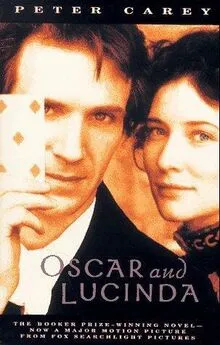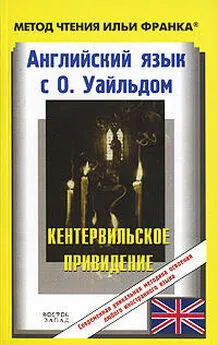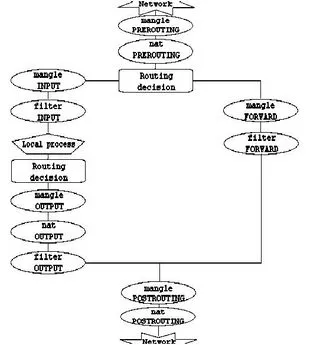Peter Carey - Oscar and Lucinda
- Название:Oscar and Lucinda
- Автор:
- Жанр:
- Издательство:Vintage Books
- Год:1988
- Город:New York
- ISBN:0-679-77750-4
- Рейтинг:
- Избранное:Добавить в избранное
-
Отзывы:
-
Ваша оценка:
Peter Carey - Oscar and Lucinda краткое содержание
The Booker Prize-winning novel-now a major motion picture from Fox Searchlight Pictures.
This sweeping, irrepressibly inventive novel, is a romance, but a romance of the sort that could only take place in nineteenth-century Australia. For only on that sprawling continent-a haven for misfits of both the animal and human kingdoms-could a nervous Anglican minister who gambles on the instructions of the Divine become allied with a teenaged heiress who buys a glassworks to help liberate her sex. And only the prodigious imagination of Peter Carey could implicate Oscar and Lucinda in a narrative of love and commerce, religion and colonialism, that culminates in a half-mad expedition to transport a glass church across the Outback.
Oscar and Lucinda - читать онлайн бесплатно полную версию (весь текст целиком)
Интервал:
Закладка:
And yet there was a part of her, a substantial part too, that did not give a damn about Dennis Hasset's story. This part was angry. It thought Dennis Hasset a weak fool and a poor friend. It judged him for not valuing her sufficiently, for slumping over in his seat, for not lighting a fire. It coexisted with this other part that loved him. And these two factions fought within her all the while she listened to his story. She thought he had a kind and intelligent face and it was not wise to speak so indulgently about his enemies.
"But surely," she said at last, "Boat Harbour can be appealed against?"
yn
> Home,
He shook his head., e
"But it is unfair. You still see yourself a Christian?" She wished he would sit up straight. v -
"Of course."
"Then damn him," said Lucinda, not softly either, "then damn him in hell." And tears were coursing down her cheeks and he leaned over and enfolded her hand with his. But she did not wish her hand held. It was too late for that now. And, anyway, her tears were selfish tears, not really shed for him at all, but for herself. He had a big hand and it did not comfort her, merely reminded her of how small her own was. "He behaves like a cad," she said, removing her hand on the pretext of finding her handkerchief. "Oh, Mr Hasset, please, and where is Boat Harbour?" He smiled and shrugged. She saw that he did not realize that her life would also be affected.
"Is it far away?" She had come to have war with him about his neglect of her works. She had despised the way he sat so hunched on the crate, but she would not be without him. He was a good man, but
too soft. She felt herself to be red and blotchy in her cheeks. The tiny veins on her eyelids would be showing.
"Far enough," he said. "It is the territory of the Kumbaingiri Tribe. What does 'far' mean in this country? I don't know, Miss Leplastrier. I am so awfully sorry about your glassworks. The two crises arrived coincidentally."
"They were all I had."
"You have them still," he said reprovingly, feeling she cared too much for her own predicament.
"Yes, but not my partner."
The softness of her voice made him catch his breath. He checked himself. He had been, generally, too emotional of late.
"I think I will never forget how you came into my study and I thought you a Mr Leplastrier. Do you remember the to-do we caused?" *
"We were most improper."
"Oh, we were a degree or two hotter than improper."!*
"And we were noted," said Lucinda who, although she was smiling, was feeling her neck and shoulders set upon by a swarm of hot
prickles. "They could not help themselves," said Dennis Hasset, grinning broadly. "Then it is I who am responsible for your exile."
Oscar and Lucinda
"Oh, no." >v
"Oh, yes, and you have tried to hide it from me. I was such a child. I never thought the harm I did you." s KK;-,
"Hush."
"I never thought."
"Hush. Do you hear me? You're wrong. You are quite wrong. Now, please. It is wholly theological, I promise you." This was not exactly true. His situation had not been helped by the association.
"Do you give your word?"
"I do," he said. She did not catch the small grimace he made at the sound of his own falsehood.
"Then do not go," she said. "If that is truly the case, then you do not have to go."
"I do not follow your logic."
"There is no more logic in my argument than there is truth in yours," she said softly. He did not know whether to smile or frown at her. He remembered the afternoons he had found her, unannounced, asleep in his armchair. "How sad life is/" he said. Lucinda stood and went to the window. She was surprised to fine the view the same. She turned up the collar of her rabbit fur. She pulled on her gloves, as if she intended to leave, and then took them off again and arranged them on a crate, laying out the fingers, flattening the thumb. "You do not have to go. You have a choice."
Dennis Hasset stretched himself and no one, seeing the languid confidence of this action, would guess that he had felt himself charged with weakness and found guilty. "I need a living," he said.
"Only a bishop can provide one. There is no choice."
"Oh, you must not."
"Must not what?" he said crossly. "What must not?"
"Must not nothing," she sighed. She sat on the crate. She could feel the splintery roughness of the wood catch on the fur. She thought of her father's whiskers on her child's face. He raised his hands (tense, hard, splay-fingered) and then let them fall (soft as rag toys). The rag hand rubbed the whiskered face. "Oh, Miss Leplastrier," he smiled, "we owe each other more charity than this."
Lucinda picked up her glove and examined it closely. "Dear Mr Hasset," she said, "I am fond of you." She frowned as if the stitching were unsatisfactory. She had a red patch the size of a florin on each cheek. "I am so very, very sorry to be the one responsible for your removal 234
Home
from my company. And I admit-even now I am thinking only of myself and how lonely it will be, and what pleasure I have had buying the works with you, and I always hoped we could plan more together. I have purchased the cylinder process from Chance and Sons." From the corridor, too close, a woman's voice: "Arthur, do not do that\" Lucinda leaned forward, frowning, speaking more quietly. "It is delivered, already, and tomorrow I will engage engineers to install it. The furnaces will be alight within the week. And it seems to me, though I have no profound knowledge of the Thirty-nine Articles, or how many miracles it is you dispute, I do not see why you must go."
There were brisk footsteps in the passage. It seemed they would have a visitor, but no. The footsteps stopped, and then went back the way they had come.
"It is like being locked inside the Tower." Dennis Hasset smiled. "I must go where I am sent."
"By God?" ::•«•
"Of course."? yv-"Or a man, a bishop?" '•'>•" •;x/l •; \
He passed his hands over his eyes. s — ,<:»*,
She said: "You do not agree with this Bishop?"»•*-«-•
"Oh, please, Miss Leplastrier, please, do leave it alone." "I shall not."
"Then," he looked up, his face red, his eyes flashing, "you are impertinent." She stood. She felt humiliated, as if her face had been slapped, her backside paddled with a leather slipper. She began fiddling with her gloves again. "So it is impertinent to feel anger when your friends are mistreated and abused. It is impertinence to think injustice should not be accepted with a bowed head. You do not accept the Virgin birth, Mr Hasset. I do not accept the wisdom of turning the other cheek." He could not be angry for long. It was his handicap, a corollary of his genera] lack of passion. His tempers were like sparks from flint, but not tinder to catch on. When he spoke he was ironic, self-mocking and the seemingly simple words he spoke were cross-referenced to other self-critical thoughts that he imagined she would see but which were, of course, clear to one but himself. "Your opinions/' he said, "are strongly put." Lucinda's gloves would not come right. Here was a thumb inside out. She had to blow to make it come out right. "Yes, and I am generally most unsuitable. I am loud and opinionated. I am silent and
MB
Oscar and Lucinda
stupid. I am an embarrassment in proper society. My mother's friends, those who wrote most passionately and invited me to come Home, discovered, when they had me in their parlours, that their passion had been mistaken. They thanked the Lord-the ones not playing atheist that they had not lost a daughter to the Colonies. They would agree with you. I should not speak so bluntly to you. I should not address you like this, even if I do hurt on your behalf, on both of your behalf s. What will happen to you, Mr Hasset? You are too fine to be in a place where there can be nothing but mud and taverns. There is no church?"
"There is no church building."
"Stay." She had her gloves on, as if ready to depart. He did not rise. She sat. "We can have the works together."
So, she thought, I beg.
She saw him consider it. She saw a little life come into his eyes. (Say yes, say yes.) He straightened his back. He crossed his legs.
"I know nothing of business."
"We neither of us do."
He looked at her: her cheeks flushed, her eyes bright, her lips parted, leaning forward and clasping her small, gloved hands together. He smiled, and shook his head. "You put the negative as a powerful argument for the positive."
She knew she could keep him. In one minute, two minutes, everything would be resolved. "It does not matter what we know. You said to me, when I was Mr Leplastrier, just walked into your study (this study here), you said I had a passion for things."
"And so do you." •;. — "You said it is a passion that matters."
"I think so still."
"Then it does not matter that we are ignorant of business. Our ignorance is temporary. Oh, Mr Hasset, dear Mr Hasset, we will make good things, things of worth, things we are proud to make. We will not be like these tallow-boilers and subdividers. We could be the most splendid Manufacturers of Glass."
"And neither of us lonely."
She looked at him with her mouth quite open, not knowing that her lower lip was almost indecently plump. She could not hold his eyes. They were soft and grey but she could not look at them. She shut her mouth. She felt herself go red around her neck and shoulders. She began to take her gloves off again. It was very quiet. A bullock team was pulling up the hill outside, but the driver made no noise. There
7Vi
Home
was just the squeaky wheel of the dray and, twice, the flick of the whip, which cut through the air like a bird-cry in the forest of their talk which had become, with this single comment, all stumps and hedgerows and not a tree to hide behind.
"I must go," he said, when the silence had become unendurable.
"So you may preach what you do not believe to men who do not care what anyone believes."
"That is not kind."
"But accurate."
"No, not accurate either. I will preach what I believe."
"That there is no Virgin birth."
"That Christ died for our sins that we might be redeemed through His blood, that we might sit at the side of God in heaven."
She was surprised by the passion in his voice. She was too used to hearing him say he had none, and too ready to accept it without cornplication. They had discussed church politics, but never once religion. They had talked on her subjects: glass, factories, the benefits of industry. He had catered to her needs and enthusiasms and she had been conceited and self-centred, and yet today, at this moment, she would rather not be an industrialist at all, would rather, if she could be persuaded it was Christian, have a little farm somewhere
Читать дальшеИнтервал:
Закладка:









